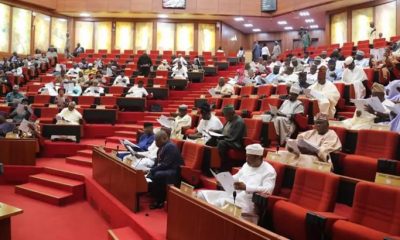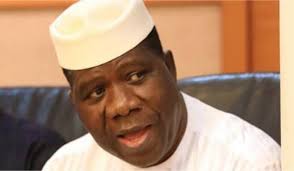News
New York Times report on Nigeria’s economic reforms false, misleading – Presidency

The response from the Presidency to the recent article in the New York Times, penned by Ruth Maclean and Ismail Auwal and titled “Nigeria Confronts Its Worst Economic Crisis in a Generation,” has been robust and assertive. Describing the article as jaundiced and misleading, the Special Adviser to President Bola Tinubu on Information and Strategy, Bayo Onanuga, emphasized that it failed to provide a balanced view of Nigeria’s current economic landscape.
Published on June 11, the article delved into the severe economic challenges gripping Nigeria, exacerbated by a year-long inflationary spiral, which it largely attributed to policies under the Tinubu administration.
Onanuga’s statement sought to clarify and contextualize the economic hardships faced by Nigerians, arguing that President Tinubu inherited rather than created these issues. He pointed out that the country had been burdened by a longstanding fuel subsidy regime, which between 2005 and 2022, had consumed a staggering $84.39 billion of national resources. This substantial financial commitment severely constrained the government’s ability to allocate funds towards other critical sectors.
Highlighting the impact of these financial obligations, Onanuga detailed how the Nigerian National Petroleum Corporation (NNPC) had accumulated trillions in debt as a result of absorbing unsustainable subsidy payments. Upon assuming office, President Tinubu’s administration faced the daunting task of grappling with an unbalanced budget that allocated a significant 97 percent of revenue towards servicing existing debts, leaving scant resources for essential recurrent and capital expenditures beyond June 2023.
In response to these challenges, the Tinubu administration undertook bold economic reforms. Among these measures was the rollback of the fuel subsidy regime and the unification of multiple exchange rates. These initiatives were deemed necessary to stabilize the economy and ensure the fulfillment of Nigeria’s financial obligations to international entities such as airlines and foreign businesses. Additionally, the administration floated the national currency, a move that has contributed to its stabilization and is anticipated to further appreciate by year-end.
Onanuga asserted that these reforms have already begun to yield positive outcomes. Notably, the economy recorded a substantial trade surplus of N6.52 trillion in the first quarter of the fiscal year, a stark turnaround from the N1.4 trillion deficit recorded in the preceding quarter of 2023. The administration has also successfully attracted portfolio investors, while long-term investors are increasingly expressing interest in Nigeria once more. International financial institutions, including the World Bank, have extended significant loans amounting to $2.25 billion, underscoring Nigeria’s renewed creditworthiness.
Addressing the pressing issue of food inflation, which continues to pose a significant challenge, Onanuga highlighted proactive measures being undertaken. These include incentivizing increased agricultural production and the establishment of state-run retail outlets offering essential food items at subsidized prices. The administration has invested heavily in promoting dry-season farming, complemented by substantial interventions such as the Central Bank of Nigeria’s allocation of N100 billion worth of fertilizer to farmers.
In conclusion, Onanuga emphasized that Nigeria is not alone in facing economic adversity, citing similar challenges confronting the United States and Europe with their escalating cost of living crises. He reiterated the Tinubu administration’s unwavering commitment to overcoming these challenges through concerted efforts aimed at stabilizing the economy and restoring sustainable growth. With continued reforms and targeted interventions, the administration remains optimistic that Nigeria will emerge stronger and more resilient from its current economic difficulties.
This comprehensive response from the Presidency aimed not only to refute what it deemed as a biased portrayal of Nigeria’s economic situation but also to provide a detailed account of the measures being implemented to navigate these turbulent times and pave the way for a more prosperous future.
“Nigeria is not the only country in the world facing a rising cost of living crisis. The USA, too, is contending with a similar crisis, with families finding it hard to make ends meet. US Treasury Secretary Janet Yellen raised this concern recently. Europe is similarly in the throes of a cost-of-living crisis. As those countries are trying to confront the problem, the Tinubu administration is also working hard to overturn the economic problems in Nigeria.
“Our country faced economic difficulties in the past, an experience that has been captured in folk songs. Just like we overcame then, we shall overcome our present difficulties very soon.”

















